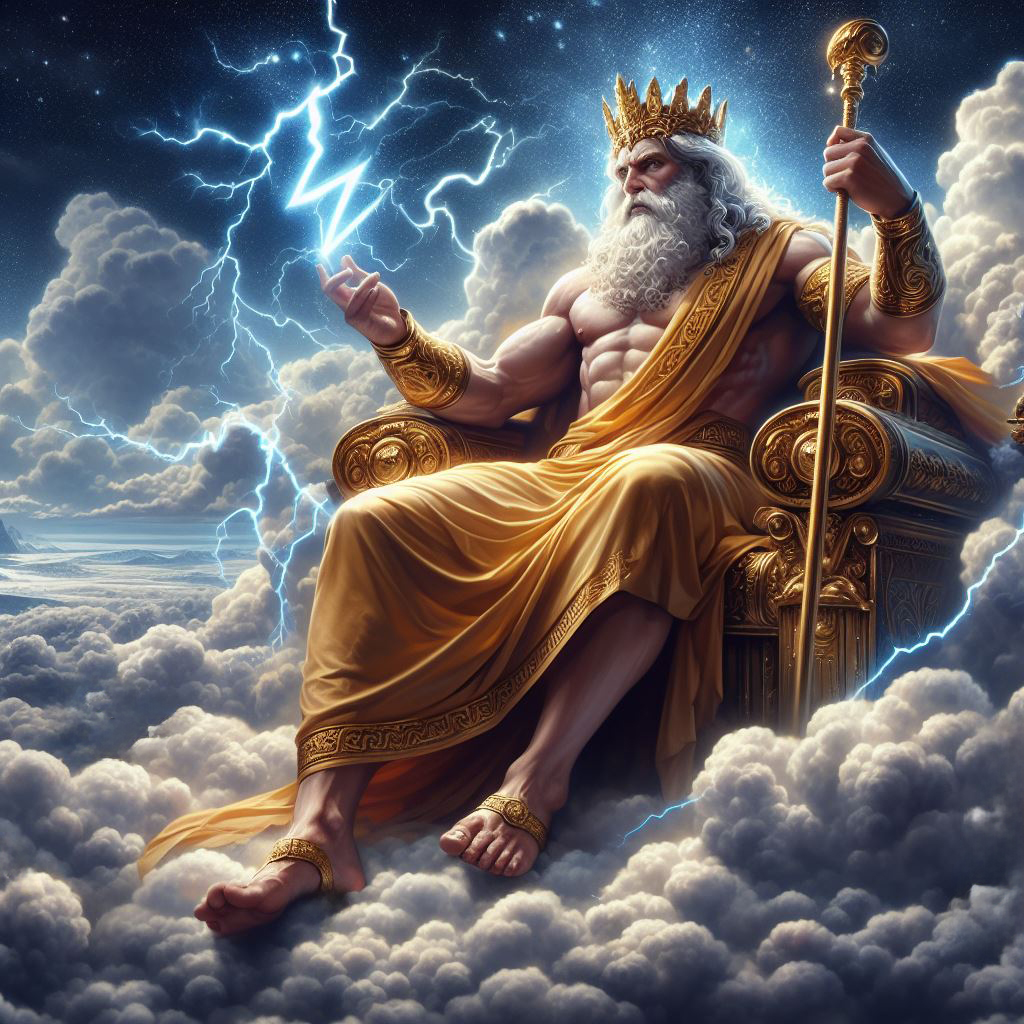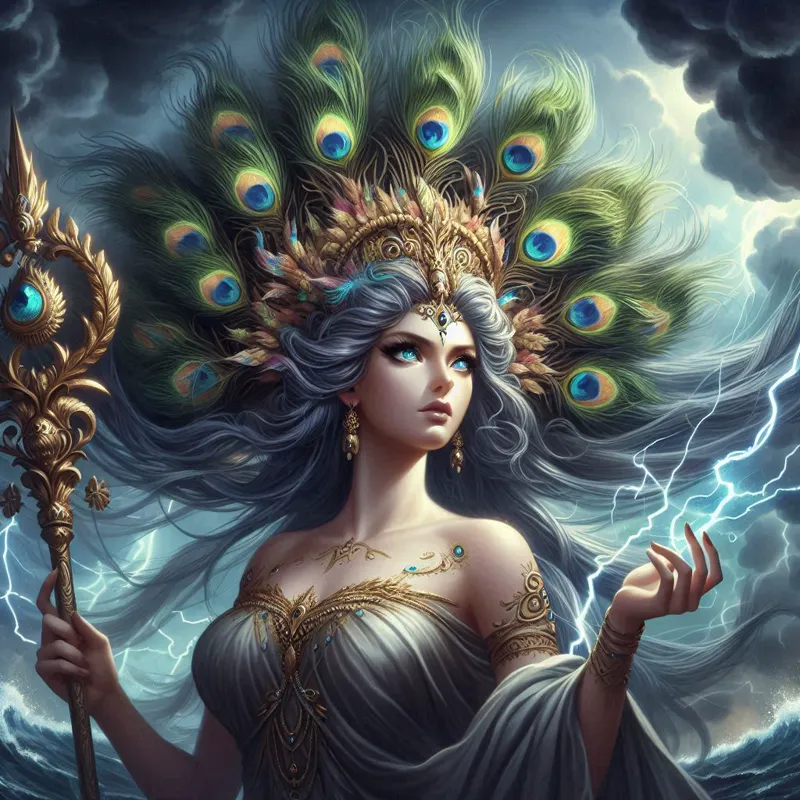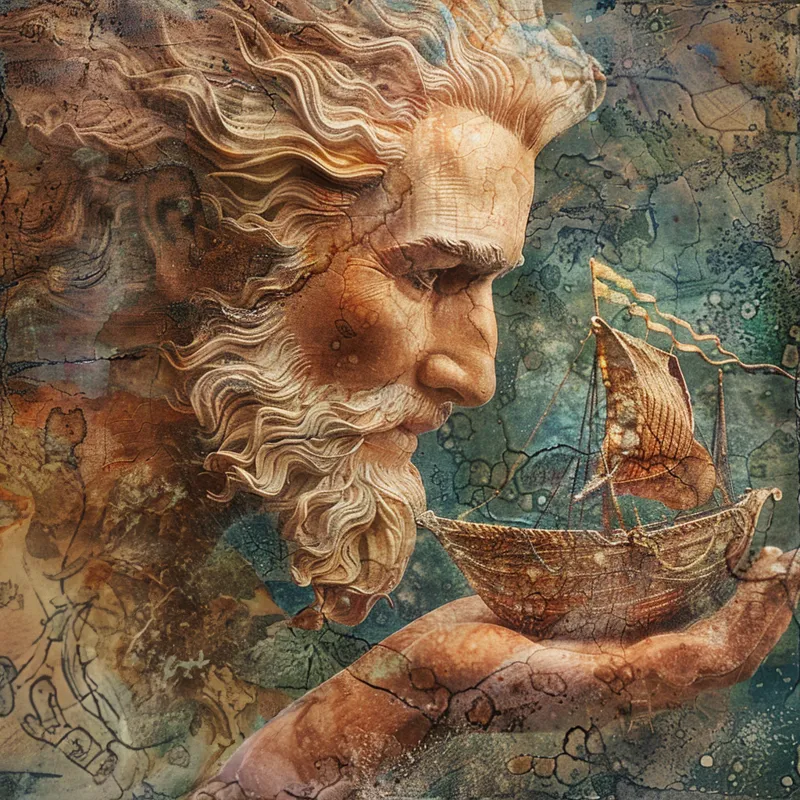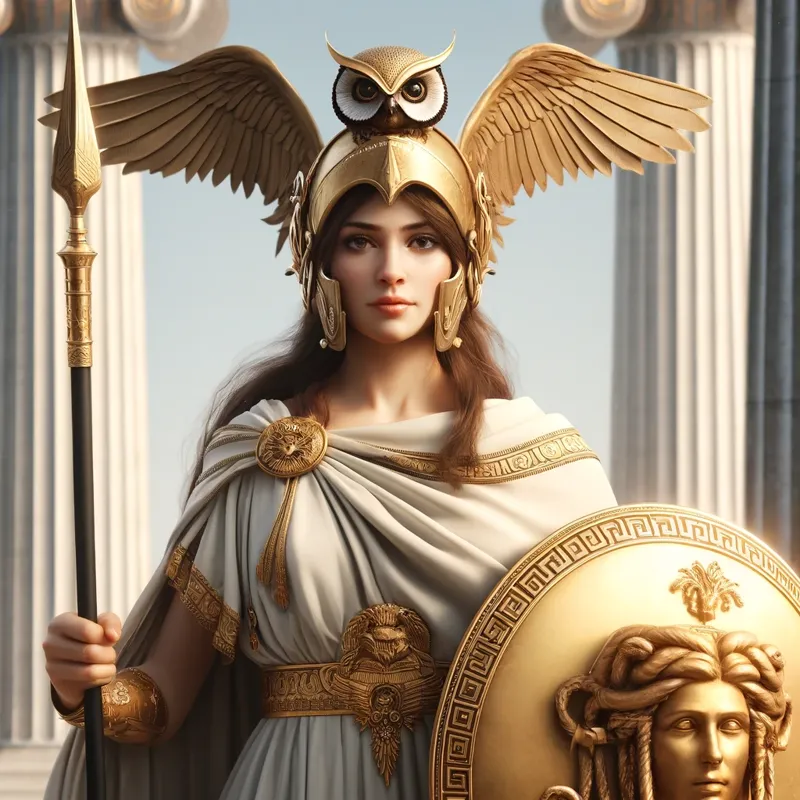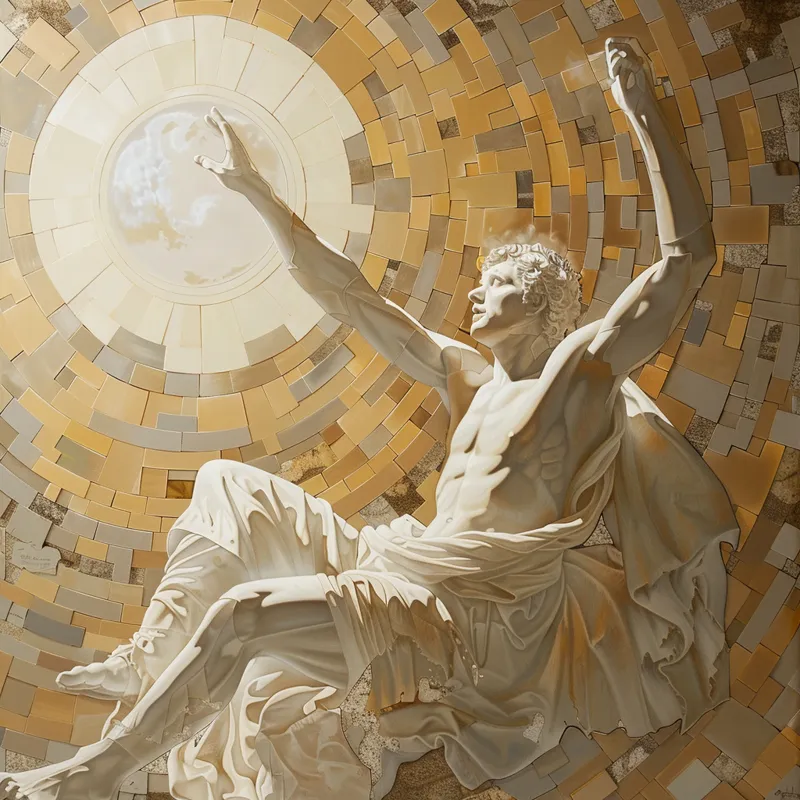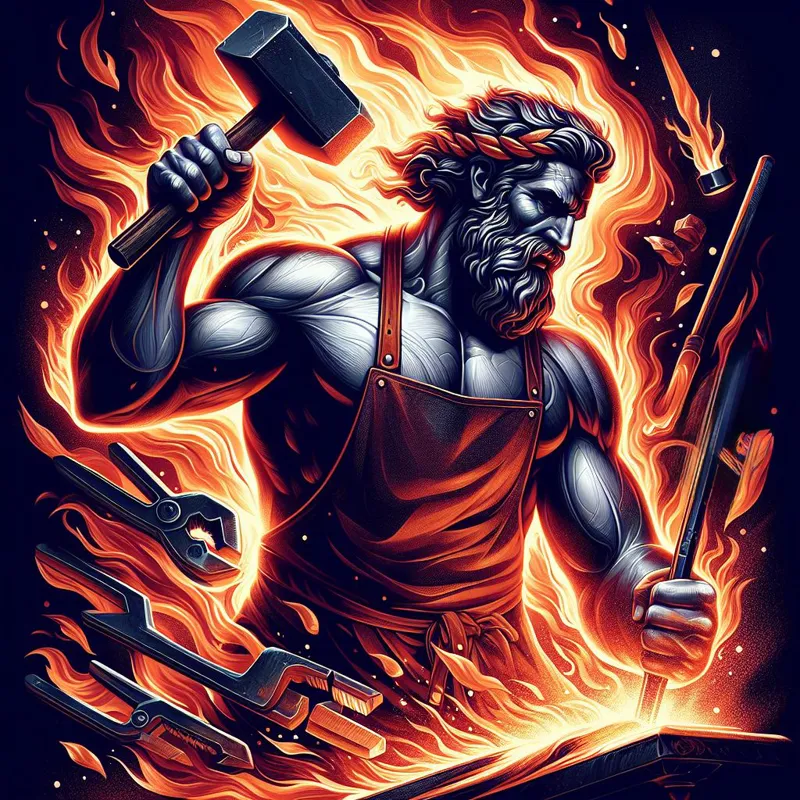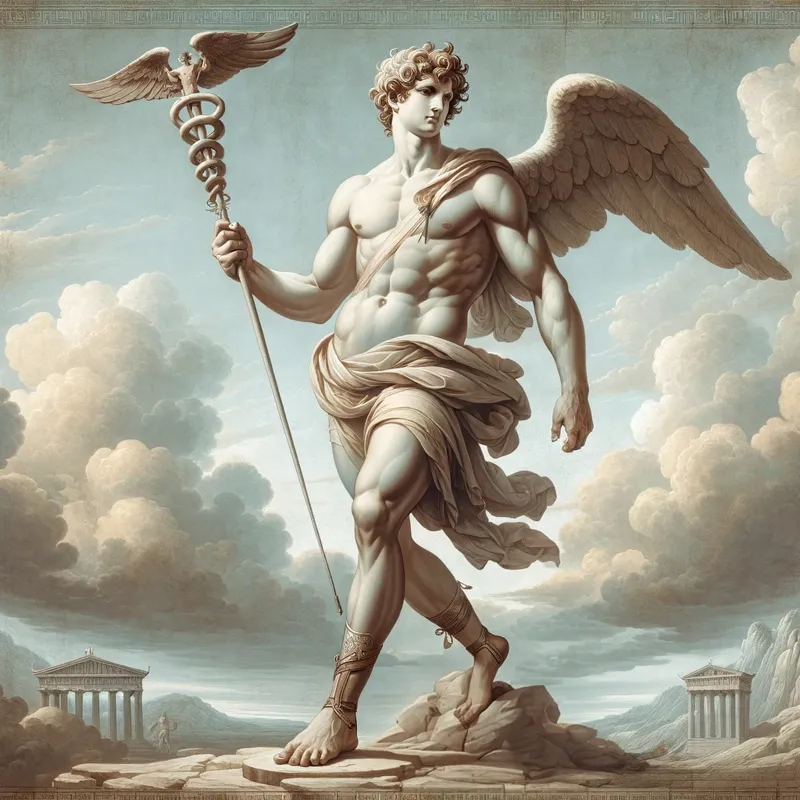
The god of connection
Hermes, a multifaceted figure in Greek mythology, is often celebrated as the Messenger of the Gods, a patron of travelers, and a god of trade, thieves, and oratory. His origins and exploits have been narrated through countless myths, encapsulating the wit, charm, and cunning that the ancient Greeks so admired.
This tale, divided into seven distinct sections, unravels the rich tapestry of Hermes' life, from his extraordinary birth to his lasting legacy in the pantheon of Greek deities.
Birth and Early Trickery
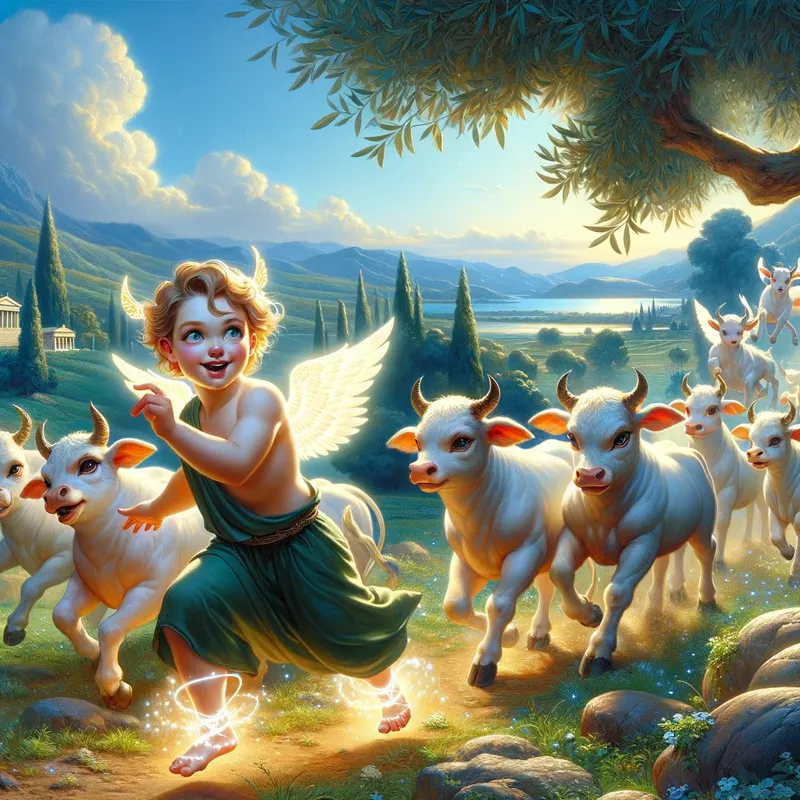
Innocence of not knowing
Born to Zeus, the king of the gods, and Maia, a daughter of the Titan Atlas, Hermes exhibited his clever nature from infancy. On the very day of his birth in a cave on Mount Cyllene, he ventured out, displaying an astonishingly precocious character. His first notable exploit was the theft of his brother Apollo's cattle. Ingeniously, Hermes reversed their hooves and led them backwards, making it difficult for anyone to track them.
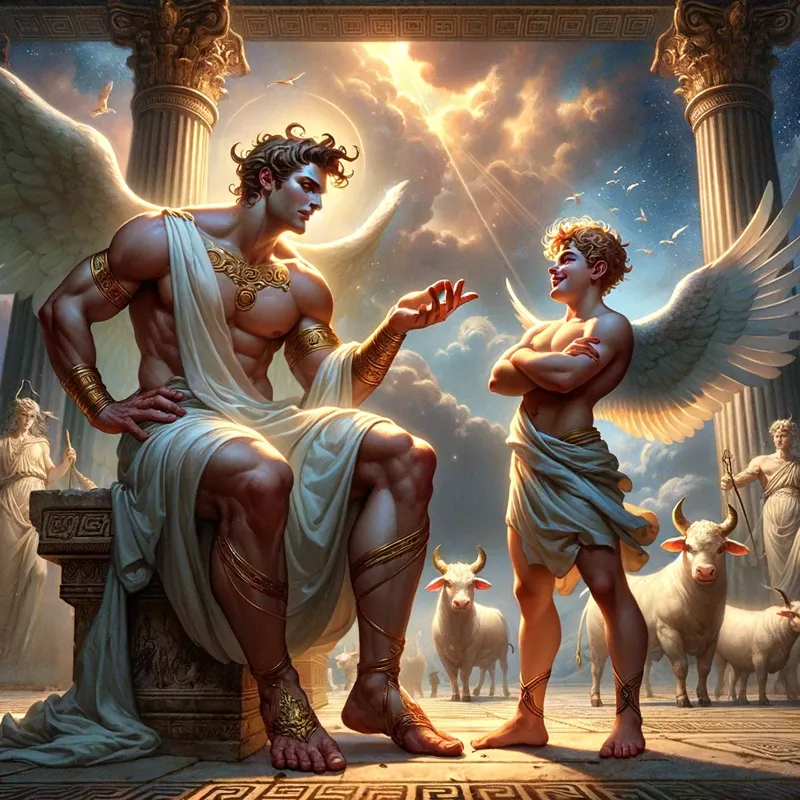
Wanting to tell and wanting to know
Apollo, furious at the theft, confronted the infant Hermes. However, Hermes, a master of deception and wit even as a newborn, denied any wrongdoing. Despite his attempts to feign innocence, Apollo brought Hermes before Zeus to adjudicate the dispute. Amused by his youngest son's audacity, Zeus nonetheless insisted Hermes return the cattle to Apollo.
Invention of the Lyre

Divine inspiration
In an act of conciliation and creativity, Hermes crafted the first lyre using a tortoise shell and cow gut, a demonstration of his innovative and artistic temperament. He gifted this lyre to Apollo, who was greatly pleased by the gesture. This not only resolved the conflict but also established a bond between the two brothers, with Apollo recognizing Hermes' potential as a future ally among the gods.
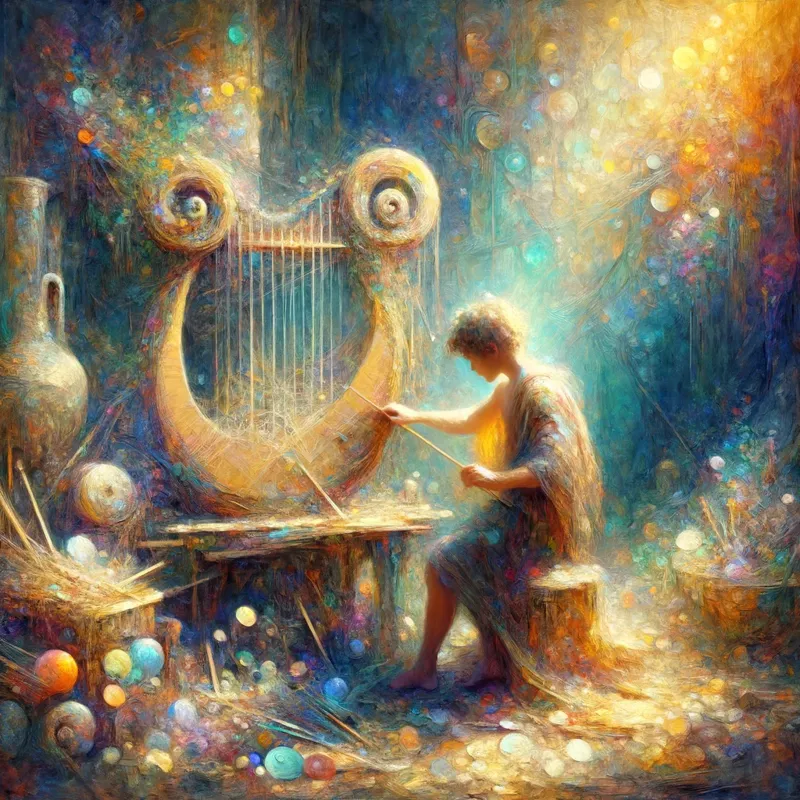
Unburdened heart
Apollo, in return, gave Hermes the staff of heralds, or the caduceus, symbolizing his future role as a messenger. This exchange marked Hermes’ official entry into the realm of the gods. With Apollo's blessing, Hermes was welcomed on Mount Olympus, securing his place in the divine hierarchy.
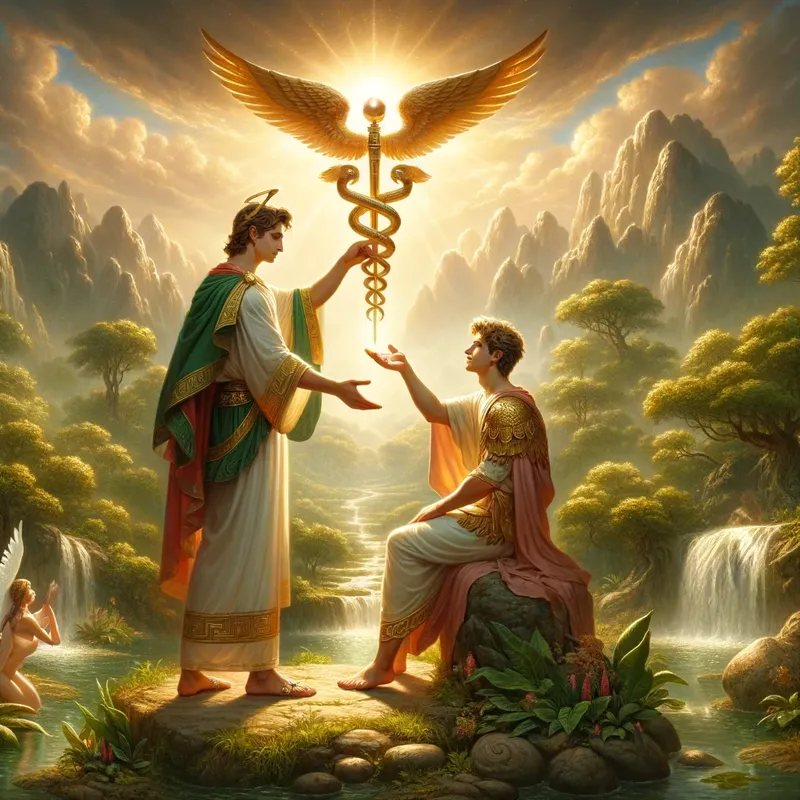
The key that keeps the ways open
Patron of Travelers and Messenger of the Gods
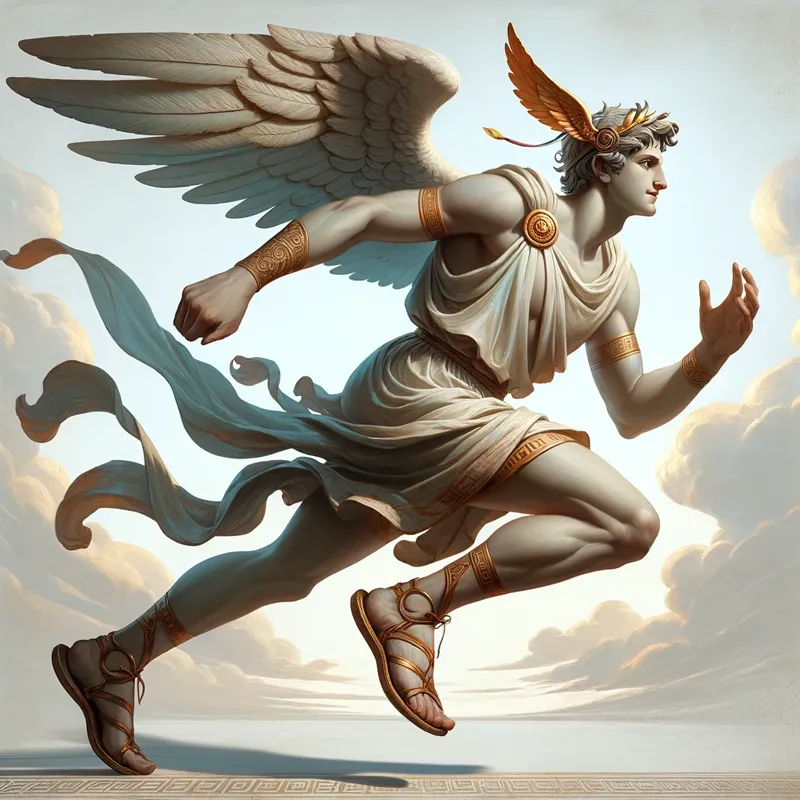
Divine messenger
Hermes' role as a protector of travelers and a messenger for the gods defined much of his mythology. Equipped with winged sandals and a helmet, he moved swiftly between the worlds of gods and mortals. He carried messages from Olympus to Earth with unmatched speed, often intervening in the affairs of gods and mortals alike to enforce Zeus’s will or offer assistance.

Neutral zone
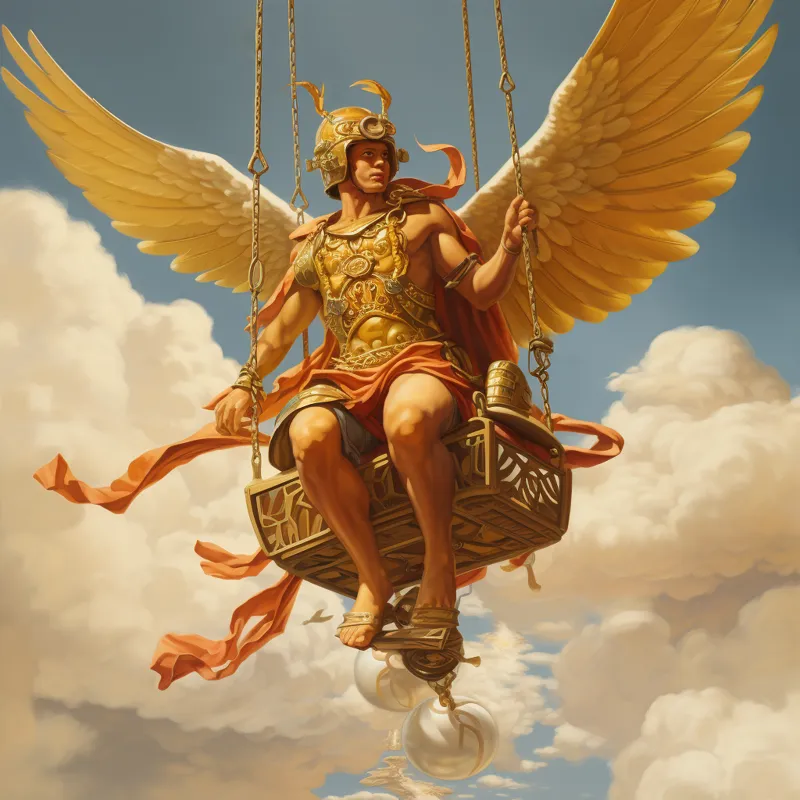
Grace period
His ability to move freely between the realms also made him a guide of souls to the underworld. As a psychopomp, Hermes provided a crucial link between life and death, escorting the deceased to the realm of Hades. His versatility and adaptability in these roles further enhanced his reputation as a resourceful and indispensable member of the Olympian pantheon.

Nature's guide
Hermes and the Invention of Writing

Creator of worlds
Hermes' intellect was not only evident in his cunning but also in his contribution to human knowledge. He is credited with the invention of writing, a gift that he bestowed upon mankind. This invention revolutionized communication and record-keeping, solidifying his position as the patron of eloquence and learning.
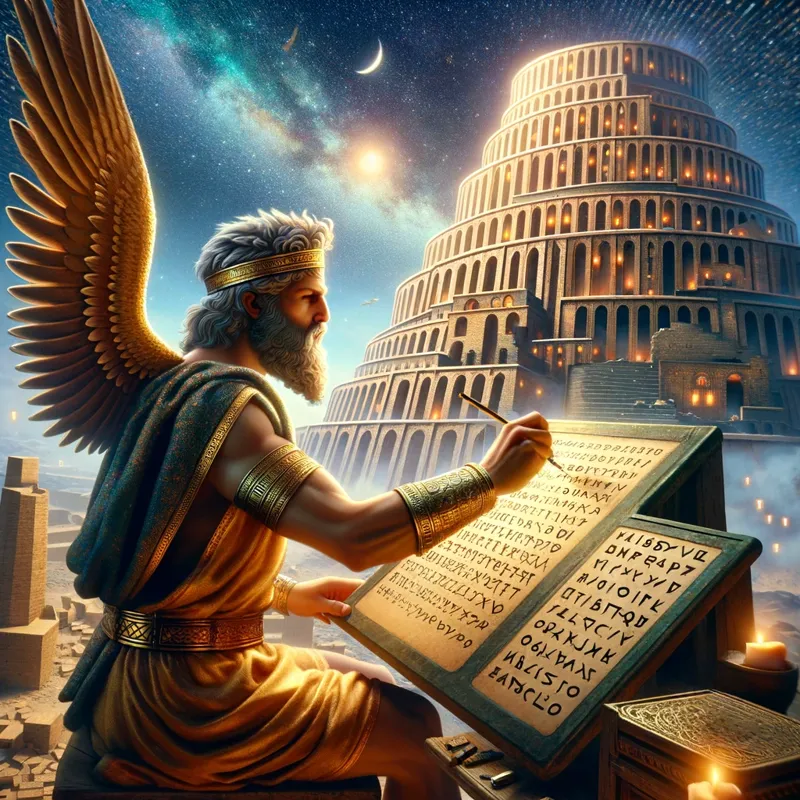
Double edged sword

Solidity
His association with writing and language naturally extended to his role as the god of commerce and trade. Merchants revered Hermes, praying to him for successful business dealings and protection during travel. His versatility and influence in both divine and mortal realms continued to grow, reflecting the Greeks' admiration for intelligence and adaptability.

To earn trust, we start by being made of stone
The Trickster and Protector

...and also to protect
Hermes’ dual nature as both a trickster and a protector added layers to his divine persona. He often used his wits and cleverness to outmaneuver both gods and mortals. One of his notable tricks was when he stole Hera's girdle, an act that demonstrated his playful and mischievous side.

The gatekeepers and their reflections
Yet, despite his trickster ways, Hermes was also a protector, particularly of households and boundaries. He was revered as Hermes Kriophoros, the 'Ram-bearer', a symbol of his protective nature. Statues of Hermes, known as herms, were placed at doorways and borders as a safeguard against harm, embodying his role as a guardian.
Hermes' Love Affairs and Offspring

Our connection to nature
Like many Greek gods, Hermes had numerous love affairs and fathered several children. His most famous son was Pan, the rustic god of nature, whom he had with the nymph Dryope. Pan inherited many of Hermes' characteristics, including his mischievous nature and affinity for music and pastoral life.
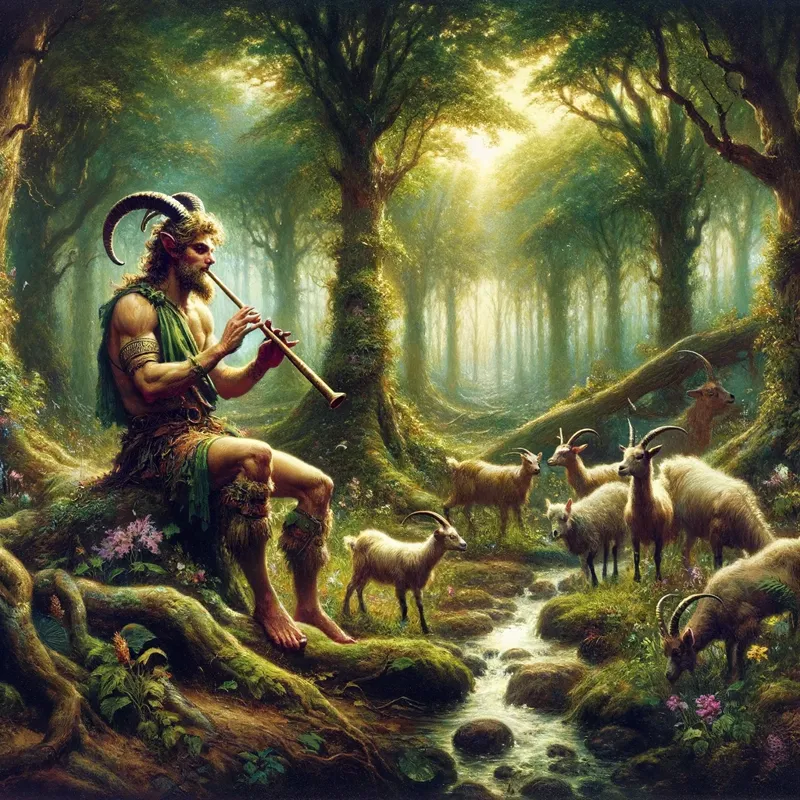
Keeps us safe
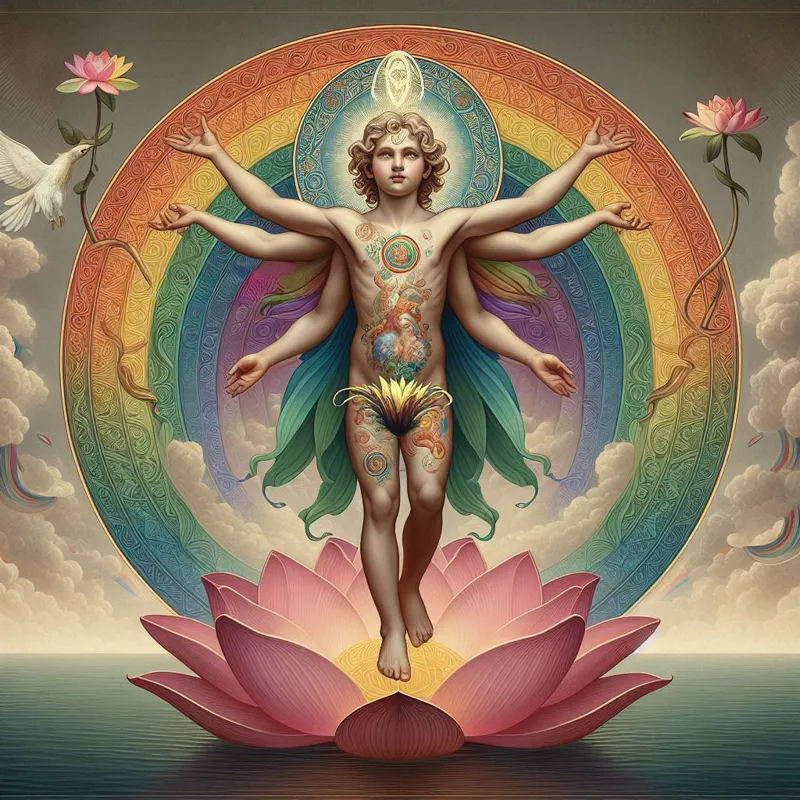
Our connection to the future
Another notable offspring was Hermaphroditus, his child with the goddess Aphrodite. Hermaphroditus embodied both male and female qualities, adding a unique and complex dimension to Hermes' lineage. Through his children, Hermes' influence extended beyond his direct actions, leaving a lasting impact on Greek mythology and culture.

Keeps us human
Lasting Legacy and Cultural Impact

The key
The legacy of Hermes transcended the realm of mythology, deeply influencing art, literature, and culture. As a multifaceted deity, he was depicted in various forms in Greek art, representing different aspects of his character. In literature, Hermes was often portrayed as a cunning and clever god, embodying the Greek ideals of intelligence and versatility.

Connections
In modern times, Hermes’ influence is still evident. He is often referenced in contemporary literature and art, and his symbol, the caduceus, is mistakenly used as a symbol of medicine and healing. His enduring legacy is a testament to the complexity and enduring appeal of Greek mythology, and his stories continue to fascinate and inspire generations.

The maintainers of connections
Hermes, the swift-footed messenger of the gods, embodies the duality of cunning and benevolence, a testament to the rich and varied nature of Greek mythology. His story, from his miraculous birth to his enduring legacy, captures the imagination with its blend of humor, ingenuity, and complexity. As we recount the tales of Hermes, we delve into a world where gods walked among mortals and where myth intertwined with the fabric of reality, leaving an indelible mark on the annals of human culture and history.


